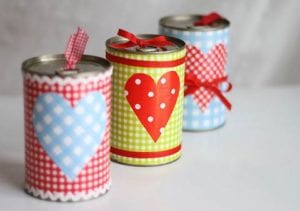Plastic production over the last half-century has mushroomed, from 15 million tonnes in the 1960s to a gobsmacking 311 million tonnes in 2014.
It is estimated that 13 000 pieces of plastic litter can be found in every square kilometre of the ocean. South Africans are culprits too and use between 136kg and 139kg of plastic per person per year, 47% of which is recycled. Given that corporate entities are the largest consumers and disposers of items such as plastic cups on a daily basis, the fight to save the environment should start with them. So, what can South African companies do to assist? The answer may lie in upcycling says Yasmine Miemiec, Managing Director of 5inc. Yasmine Miemiec details her thoughts on this:South Africa’s part in the war against plastic
South African companies need to look at reducing the amount of plastic packaging that all consumables are sold in. Where it is necessary to use plastic packaging, recycled plastic can be used in the making of the packaging. The highlights the shift towards ‘reduce and re-use’. However, upcycling also plays a major role in the fight against plastic. Globally, there is a mass of innovation taking place in the repurposing of plastic items. Examples of the creative repurposing of plastic are floating islands which are helping to combat habitat loss and are the basis of aquaculture farms.Upcycling a twofold solution
Although there is a global shift, the uptake of upcycling locally, has been slow. However, in South Africa upcycling can also help combat our huge unemployment problem. Companies can therefore contribute to the transformation of the plastic that is already in the environment and create jobs at the same time via upcycling.By throwing their support behind projects which seek to remove plastic from the environment and by working with communities, these organisations can find ground-breaking and original ways to generate incomes from the items that would be normally be thrown in the trash.
An inspiring example of this is the upcycling of millions of disposable coffee cups that are used in corporate South Africa. A company has found a simple solution that has led to the training and employment of many people while upcycling their used coffee cups into eco friendly products in the form of veggie seed bombs. This process involves separating the outside paper from the inside plastic of the cup. The paper is then used to make a mould for the veggie seed bombs. The seeds are put into compost and fertiliser, covered with the mould and sold back to corporates and the public to plant in their veggie gardens. Workers are now able to receive the used coffee cups from the company, manufacture the seed bombs and sell them as a different product, thereby creating their own income.







